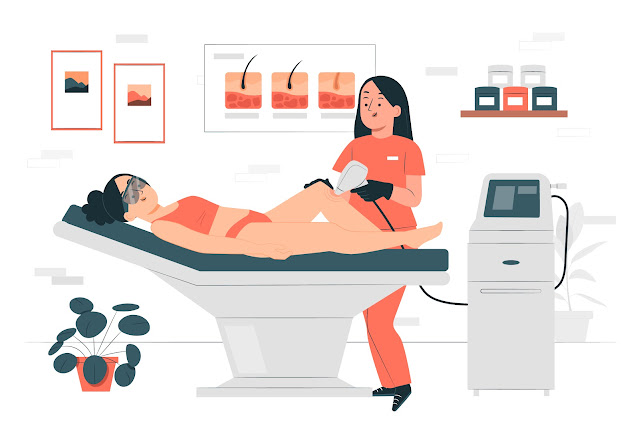Dark Spot Removal - A Complete Guide
Dark spots, often referred to as hyperpigmentation, are a common skin concern for many people. These spots can appear as small, localized patches or cover larger areas, typically caused by factors such as sun exposure, aging, or hormonal changes. While some may consider them a cosmetic annoyance, others might seek professional treatment for clearer skin.
Visiting a dermatologist or skincare clinic can offer effective solutions for those looking for dark spot removal. It's important to understand the various treatment options available, which are tailored to the type and severity of the spots, as well as the individual's skin type.
This article aims to guide you through everything you need to know about professionally addressing dark spots, from preparation to aftercare. By equipping yourself with the right information, you can make informed decisions about the best treatments for your skin health and appearance.
What Are Dark Spots?
Dark spots, also known as hyperpigmentation, are areas of the skin that become darker than the surrounding tissue. This happens due to an overproduction of melanin, the natural pigment that gives color to our skin, hair, and eyes. These spots can vary in size and shape and can appear on any part of the body, though they are most commonly found on the face, hands, and other areas frequently exposed to the sun.
While dark spots are generally harmless, many people choose to treat them for cosmetic reasons. The visibility and extent of dark spots can depend on skin type and tone, with contrasts often being more pronounced on lighter skin. Effective treatment and management of these spots require an understanding of their nature and the specific types of hyperpigmentation they represent.
Identifying Symptoms of Dark Spots
Dark spots, commonly known as hyperpigmentation, can manifest distinctly across different individuals depending on several factors such as skin tone and the extent of exposure to various elements.
Recognizing the symptoms of dark spots is crucial for early identification and effective treatment:
Color Variation: Dark spots are characterized by patches of skin that are darker than the surrounding areas.
Shape and Size Variability: These discolorations can range from small, pinpoint-sized dots to large, irregular patches.
Common Locations: Typically appear on sun-exposed areas like the face, shoulders, back, arms, and hands.
Texture: Dark spots are usually flat and do not affect the texture of the skin, unlike moles or raised lesions.
Uniformity: The pigmentation in dark spots is generally uniform, making them distinct from freckles which might have varied tones within each spot.
No Pain or Itching: Unlike some skin conditions, dark spots usually do not cause physical discomfort or changes in skin sensation.
When to Meet An Expert
Recognizing when to seek professional help for dark spots can be pivotal for effective treatment and peace of mind. Whether you're dealing with persistent discoloration, rapid changes, or simply seeking a second opinion after trying home remedies, consulting an expert is a wise step.
Persistent Spots
If you notice dark spots that persist or grow over time without any signs of fading, it's important to consult a dermatologist.
Rapid Changes
Seek professional advice if dark spots change in appearance quickly. This includes changes in color, size, or shape.
Increased Number
If new dark spots keep appearing at a rapid rate, professional evaluation is necessary to understand the underlying cause.
Associated Symptoms
If dark spots are accompanied by other symptoms such as itching, bleeding, or irritation, it's crucial to get them checked by a specialist.
After Home Remedies
If you've tried over-the-counter treatments or home remedies for a few months and see no improvement, a dermatologist can offer more effective solutions.
Unusual Appearance
Dark spots with irregular borders, multiple colors, or unusual appearances should be assessed by a dermatologist to rule out serious conditions.
Personal or Family History of Skin Cancer
Individuals with a personal or family history of skin cancer should have regular check-ups, especially if dark spots appear or existing ones alter.
Preparing for Your Dermatology Appointment
When you notice unusual dark spots on your skin, your first step is typically to consult your primary care physician. Based on their initial assessment, they may refer you to a dermatologist who specializes in skin conditions for further evaluation.
What to Expect During the Consultation
During your appointment, the dermatologist will conduct a thorough examination and ask a series of questions to understand the history and nature of the dark spots. Here are some questions you might be asked:
Onset of Symptoms: "When did you first notice the dark spots?"
Progression: "Did the spots appear gradually over time or did they develop suddenly?"
Additional Skin Changes: "Have you observed any other changes in your skin’s appearance or texture?"
Discomfort: "Do the spots cause any itching, tenderness, or discomfort?"
Sun Exposure History: "Have you had frequent or severe sunburns?"
Current Sun Exposure: "How often are you exposed to the sun, and do you use any forms of UV protection?"
Family Medical History: "Is there a history of age spots or skin cancer in your family?"
Medications: "What medications are you currently taking?"
Questions to Ask Your Dermatologist
It's also important to come prepared with questions to ask your dermatologist when getting face pigmentation treatment. During your visit, please consider asking the following questions:
Monitoring Changes: "What changes in my skin should I monitor for that might indicate a serious condition?"
Treatment Outcomes: "If these are age spots, what treatments are available, and what results can I expect?"
Potential for Complete Removal: "Can treatments completely remove my dark spots, or will they just lighten them?"
Risk of Cancer: "Is there a chance these spots could develop into skin cancer?"
Being well-prepared for your dermatology appointment will help you make the most of your consultation and ensure you receive the best advice and treatment options for your skin concerns.
This preparation not only aids in diagnosing and managing your current skin issues but also in proactive skin health maintenance.



Comments
Post a Comment